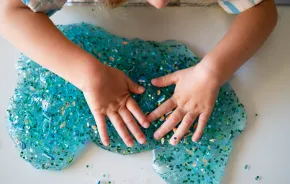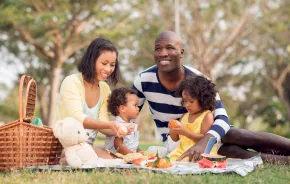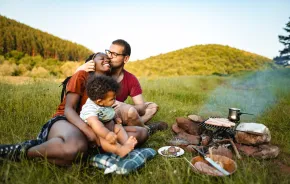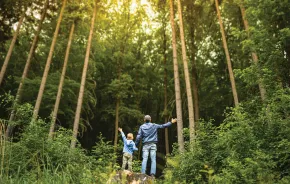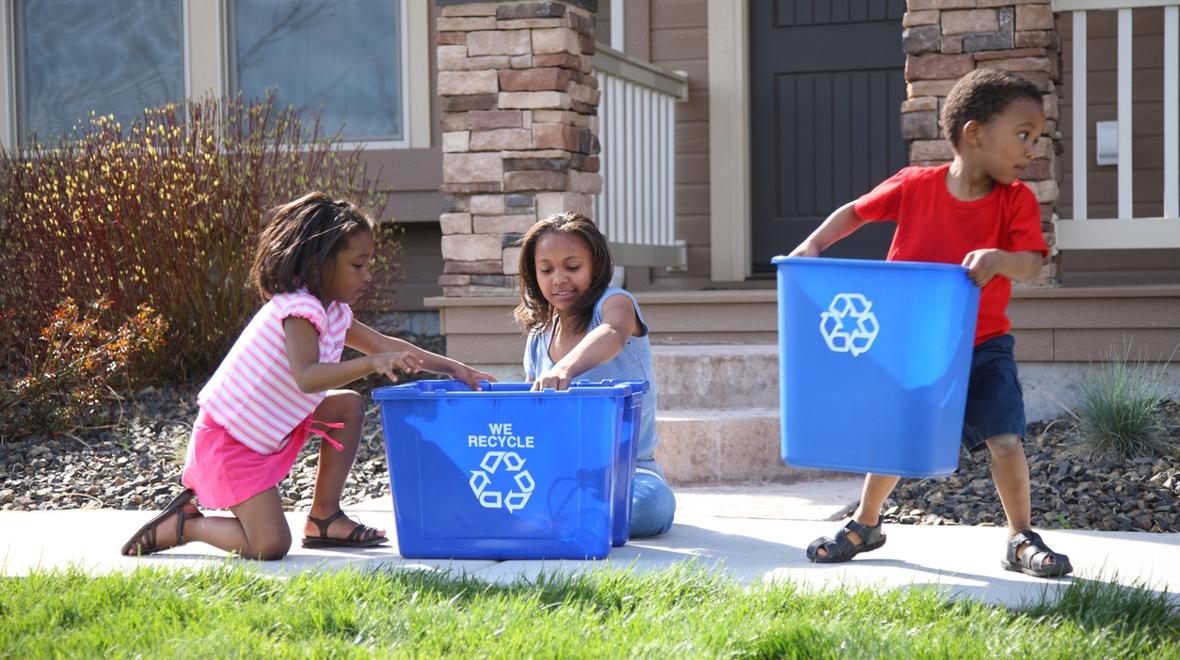
Have you ever heard of “wishcycling”? That’s when we put nonrecyclable items into the blue bin to avoid garbage guilt. But this contamination can cause whole loads of recyclables to end up in the landfill. At the same time, doing truly sustainable things like biking to work instead of driving are really hard and sometimes not even feasible. Kermit said it best: It’s not easy being green. But nearly all of us can find ways to be greener without undue hardship. In fact, sometimes the sustainable thing to do is actually cheaper and easier than what you are (probably) doing now.
1. Throw things away (the right way).
Put less waste in the recycling bin. Find out what materials your curbside recycling program accepts (it’s a little different in every Puget Sound community) and post the list right by your recycling bin to keep contaminants out. Instead of fretting about every wrapper, make more impact with resources like Freecycle to get rid of reusable items and find recycling options for other waste by consulting the King County Recycling Directory or the Earth911 recycling database. When you purchase big items like tires, mattresses or appliances, ask about haulaway services and whether the item will be recycled.
2. Eat leftovers.
Eating leftovers takes less work than cooking from scratch every time and creates less waste. Nobody wants to eat plate scraps, but you can cook and freeze extra for later; use leftovers for lunch instead of dinner; and think about ways to recombine ingredients. Google “creative leftovers” for thousands of easy ideas.
3. Leave the leaves.
Yard work is hard work, and a lot of our routine tasks are not only unnecessary, they are harmful. Pesticides are toxic to more than just bugs, fertilizers leach into waterways as pollution, and gas-powered equipment causes hearing damage while spewing more pollution than an automobile. So reject the chemicals, and leave the leaf blower in the garage and the leaves on the ground, where they’ll break down and fertilize the soil. And skip the seasonal cleanup — dead stalks and leaf litter provide habitat for beneficial insects. If you’re used to pursuing a perfectly manicured look for your landscape, it might take a little time to learn to appreciate a more natural aesthetic. But it gets easier when you start to see birds, butterflies, squirrels and even bunny rabbits frolicking in your yard.
4. Skip the checkout line.
The stuff we buy accounts for about one-quarter of America’s greenhouse gas production. Yet the Pareto Principle, aka the 80/20 rule, is as applicable to our personal inventories as it is to business. So, before you buy anything, stop and think about whether you really need it. You might end up saving time, money and the environment.
5. Vote.
The past few presidential administrations have given us whiplash over the rollback and return of environmental protections. But many environmental decisions are made by city and county councils. Even the school board (think about diesel versus electric buses) regularly makes decisions that directly affect the environmental quality of your community. Find out where local candidates stand on environmental issues and use your vote to let them know where you stand. In Washington state, voting only takes minutes and access to a mailbox or ballot dropbox.
More ways to live green: |








